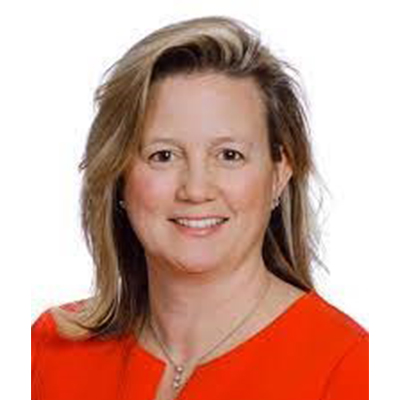
Interdisciplinary real estate panel discusses industry predictions at 2023 Kornblau Real Estate Market Outlook
Feb. 2, 2023 - Sarah MurphyVCU Kornblau Real Estate welcomed a panel of experts from intersecting industries at the 2023 Real Estate Market Outlook, hosted virtually on Thursday, January 26. More than 800 professionals from across the Richmond region and beyond tuned in to hear the six panelists share their takeaways from 2022 and predictions for the year ahead.
Panel guests included Greta Harris, president & CEO at the Greater Richmond Housing Coalition; Dana Markland at the Home Building Association of Richmond; Frank Martino, vice president of the L.F. Jennings Central Virginia office; Skip Nash, vice president, properties at Gumenick Properties; Jennifer Wakefield, president & CEO at the Greater Richmond Partnership; and Melvin Watkins, group manager at M&T Bank. The panel discussion was moderated by Mary Katherine McGetrick, commercial real estate attorney at Williams Mullen.
McGetrick introduced a range of topics, starting with climbing interest rates, ongoing talks of a recession, and how both are impacting real estate business in 2023.
“Based on everything I’m seeing, I think it may be 2024 before we start to see a retreat,” said Watkins about interest rates. “The thing that really keeps me up at night is that we have an inverted yield curve sitting in front of us. How do we straighten that curve, and what does that effect as far as the permanent markets are concerned?”
Markland commented that home buyers are somewhat adjusting to the higher interest rates, particularly the buyers coming to Richmond from more extreme markets like New York, Boston — of which there have been many in the years since Covid. “The rate factor doesn’t have as much of an impact on their wallets as it does for the people already living here,” said Markland.
Where she did express concern is with supply; on the ability to deliver multi-family projects in the pipeline, which can take years to come to fruition.
“We’ve been so underbuilt in these more affordable multi-family projects, whether for-rent or for-sale,” said Markland. “Given the rate increases, it’s becoming more and more difficult from an investor’s appetite and a builder’s ability to put these projects on the ground. What that means down the road for us is troubling.”
“There have been instances where we’ve hit our budgets and think everything is good to go, but then a client comes back and says, ‘interest rates have gone up, the project isn’t as feasible,’” said Martino. “Last year, we had to get creative to solve the escalation issues, delays on materials. This year it seems like the interest rates are causing us to have to really dig in and value engineer on projects.”
The need for creativity and adaptivity has been similar for the BetterRichmond Housing Coalition, said Harris when responding to whether or not panelists are bracing for a recession. “Late last year, we were able to buy our first existing multi-family property in seven years. We’re continuing to be as creative as possible to get deals done, though it’s taking much longer and we’re having to work much harder to get deals across the finish line to the construction closing.”
In discussing economic development across the Richmond region, Wakefield shared insights about the success of manufacturing and goals for growth in the office sector.
“We see organizations looking to decrease their footprint in larger markets, so we’re making a strong play for Richmond to be the place for them to consider moving,” said Wakefield. “Our office products cost a lot less and payrolls aren’t as high as what you would find in a much larger market. We’re definitely trying to make some of that office product happen.”
What Wakefield says is in demand in Richmond is availability of product. “We are going to run out of room at some point. Conversely, we have a whole lot of office product out there that does not necessarily match what people are looking for post-pandemic, which is five-star, bright and shiny.”
“It’s the same for residential, which would be the land,” said Markland in response to Wakefield. “The last few years have spurred more NIMBY-ism than what we were seeing pre-2020, and I think that’s something we all need to grapple with as a region. Are we going to be this gateway to southern hospitality, or are we going to close the doors behind us?”
When McGetrick asked each panelist to give 2023 a green, yellow or red light for the real estate industry as a whole, most panelists hovered in the yellow range.
“I think this year we’ll see some clarity on interest rates, volatility in prices on materials for new construction and some stabilization or retreating on rental income for multi-family,” said Watkins. “Unfortunately, as the panel has said, I think single-family housing is going to continue to increase at a rate that is unheard of. Yellow light.”
“I would say from our business standpoint, it’s more green than yellow, but we’re looking for that yellow signal to switch,” said Nash. “The fundamentals are what we’re looking for are still there for us, it’s just going to cost more and take a little longer. But the outcome and the fundamentals to get there are fine.”
For more information about VCU Business or the VCU Kornblau Real Estate Program visit the School of Business website. For a complete list of upcoming events at VCU Business, visit the events page.
